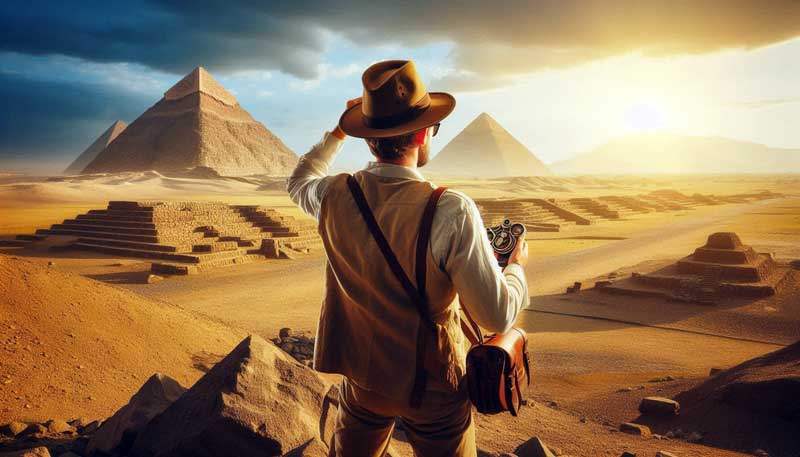 Archeology is one of the most interesting fields of science that helps us discover the secrets of the past. Archeologists Work similar to solving a giant puzzle. We can learn how thousands of years old people lived by studying their remains including structures and objects. It is like being a detective for solving the mysteries of history.
Archeology is one of the most interesting fields of science that helps us discover the secrets of the past. Archeologists Work similar to solving a giant puzzle. We can learn how thousands of years old people lived by studying their remains including structures and objects. It is like being a detective for solving the mysteries of history.
Archeology is the study of human history by examining things that they have left behind. The common left behind things are bones, buildings, tools, pottery, and even trash! In other words, the remnants of anything that people have used, built, and interacted with in the past can be studied.
The word archeology is derived from two Greek words “archaios” which means ancient and “logos” which means to study. So, it literally means to study the ancient things. But archeology is more than looking for ancient stuff, it also helps in understanding how people lived in the past and thought process.
How Archeologists Work?
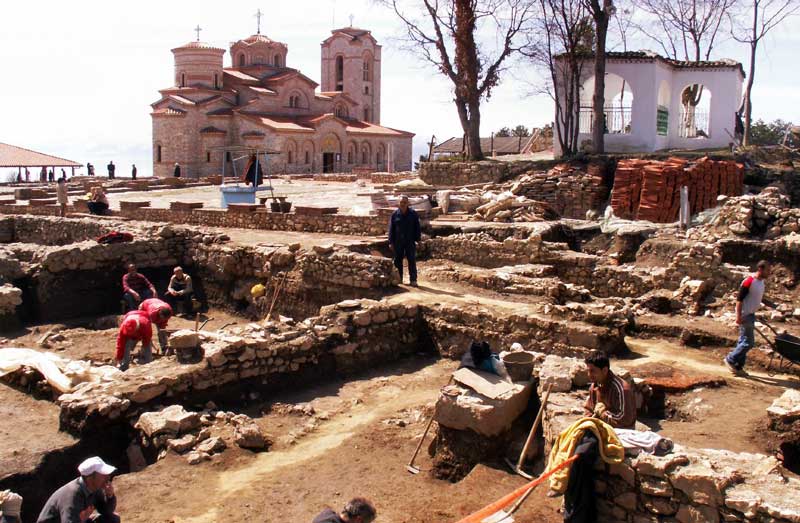 Archeologists are the detectives of the past who use various tools and techniques to reveal secrets of the past. They start their work by finding ancient sites where they found traces of any past human settlement. These sites can be anything from a small cave to a big ancient city.
Archeologists are the detectives of the past who use various tools and techniques to reveal secrets of the past. They start their work by finding ancient sites where they found traces of any past human settlement. These sites can be anything from a small cave to a big ancient city.
When a site is identified, they carefully examine it and start to dig and excavate to uncover artifacts hidden beneath the ground. Archeologists have to be very careful during the digging process to avoid any accidental damage to artifacts. They use tools like shovels, trowels, and brushes of various sizes to remove layers of dirt and slowly reveal the artifacts.
During the process of excavation, archeologists record every small detail including the exact location and depth of an object. These details help them later to piece the story of ancient people together. After the excavation process, the recovered artifacts are examined carefully. For instance, the design of pottery may show how people cooked or stored stuff, and the shape of the spearhead can reveal how they hunted.
Examples of Archeological Discoveries
Many amazing discoveries in the field of archeology helped in understanding the lives of ancient humans. Some of these examples are:
The Pyramids of Egypt
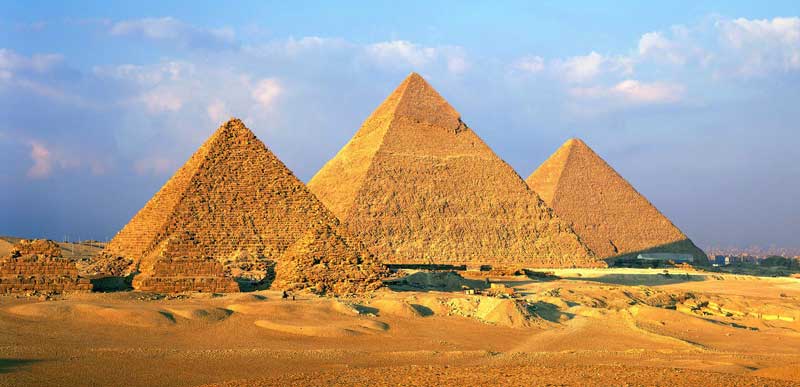 The pyramids of Egypt are one of the most iconic discoveries made to date. These megalithic structures were the tombs of Egyptian kings called pharaohs and were constructed 4,000 years ago. Archeologists have found many fascinating artifacts including mummies, hieroglyphs, and even treasure!
The pyramids of Egypt are one of the most iconic discoveries made to date. These megalithic structures were the tombs of Egyptian kings called pharaohs and were constructed 4,000 years ago. Archeologists have found many fascinating artifacts including mummies, hieroglyphs, and even treasure!
Pompeii
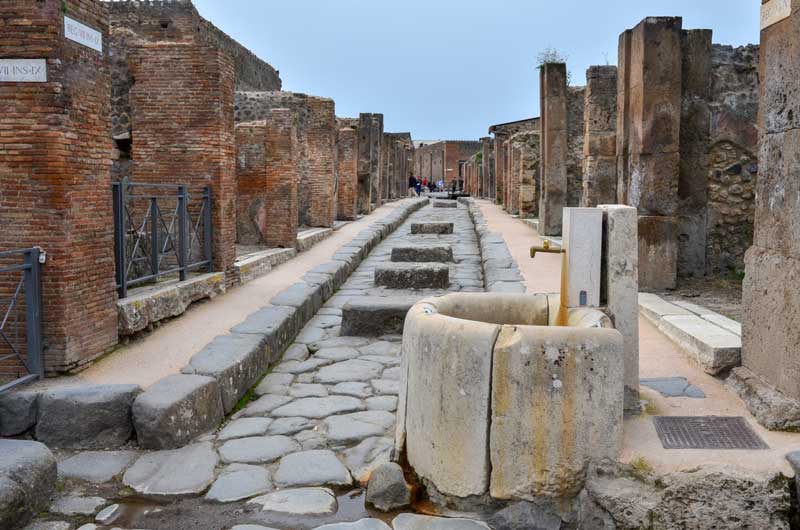 Pompeii was an ancient Roman city that has remained under volcanic ash for more than 2,000 years. When archeologists uncovered it, they were amazed to see that the city remained well preserved under the ashes. It has been estimated that Pompeii was buried under volcanic ashes when Mount Vesuvius erupted in 79 CE.
Pompeii was an ancient Roman city that has remained under volcanic ash for more than 2,000 years. When archeologists uncovered it, they were amazed to see that the city remained well preserved under the ashes. It has been estimated that Pompeii was buried under volcanic ashes when Mount Vesuvius erupted in 79 CE.
Cave Paintings in Lascaux
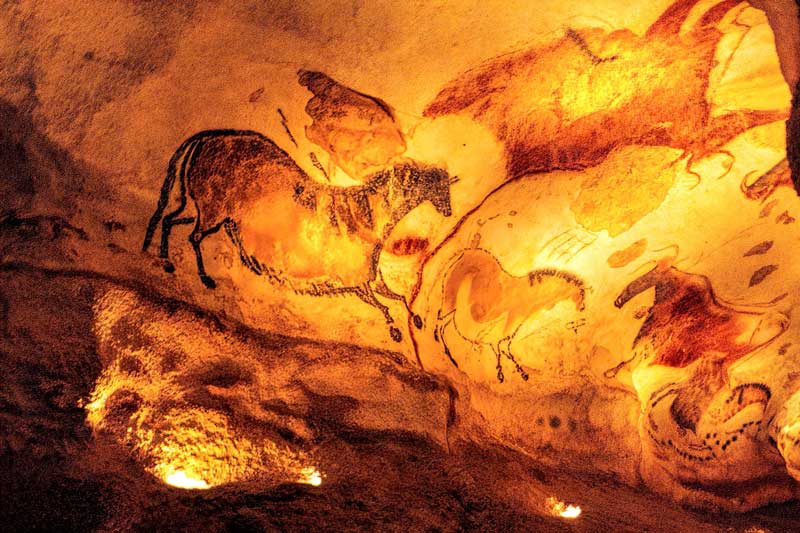 Archeologists have discovered several Caves in France that were decorated with paintings made by ancient humans. It has been estimated that these paintings are more than 17,000 years old.
Archeologists have discovered several Caves in France that were decorated with paintings made by ancient humans. It has been estimated that these paintings are more than 17,000 years old.
Why Archeology Is Important
Archeology is essential for understanding how humans and civilizations have evolved over time. It helps in learning of ancient civilizations that no longer exist today. For instance, the archeology of Mayan temples reveals how they have developed a system of writing and methods of trading. Further, it also helps us understand the adaptations of humans to changing environments and how they overcame challenges.
Archeology gives us knowledge of the past and helps us preserve that history for the future. It connects us with ancient humans and gives us insights into their creativity and resilience. Archeologists have played a crucial role in protecting the ancient sites that would have been lost otherwise.
Difference Between Archaeologists And Paleontologists
The people studying Fossils of dinosaurs and other life forms may seem similar to archeologists, but they are different. They are called paleontologists who study life on the Earth by studying fossils of plants, animals, and microorganisms. In contrast, archeologists study ancient human life and their culture by analyzing material left by them. The methods and tools used by archeologists and paleontologists seem similar, but they are quite different.
Fun Facts
- Terracotta Army artifacts were discovered accidentally by farmers in China when they were digging a water well in 1974.
- The discovery of Alexandria’s ancient harbor that was lost beneath the sea is an example of archeology underwater.